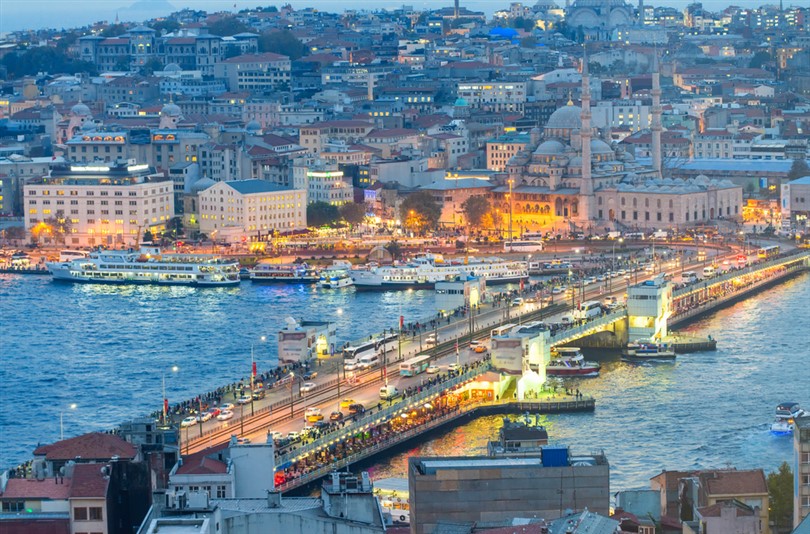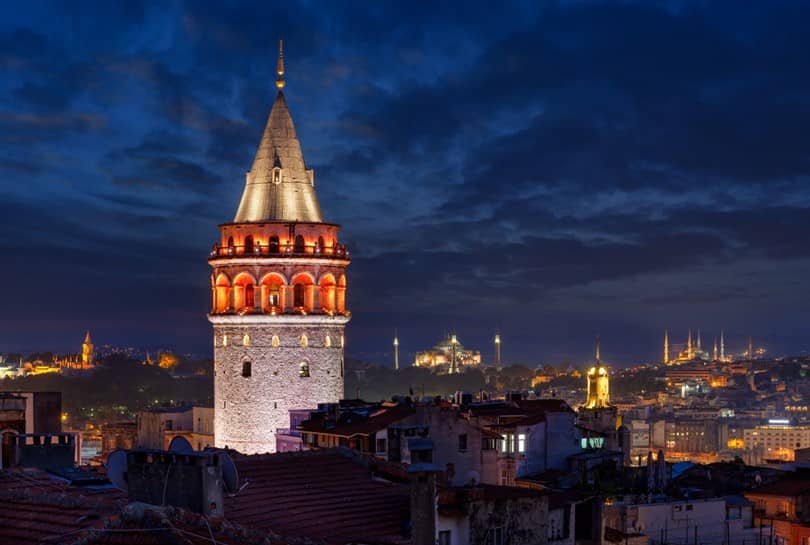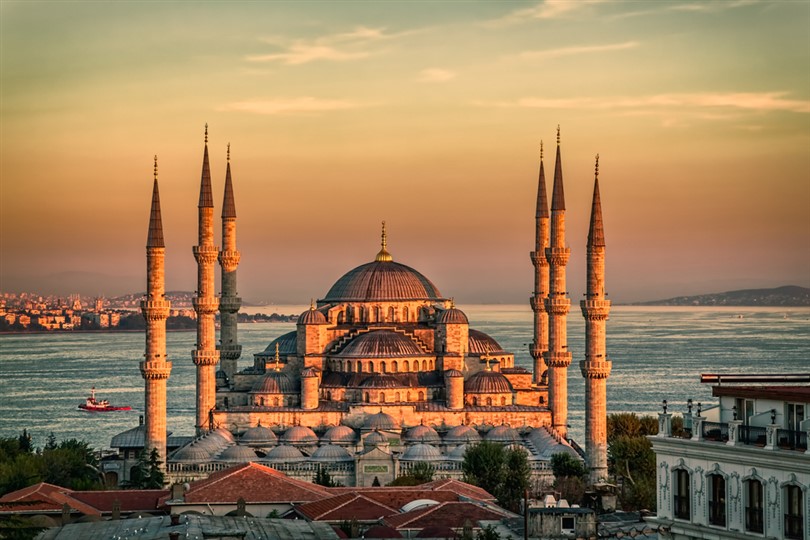Any foreigner living in Istanbul will testify as to its vibrant diversity. Traditional Turkish and modern trends combine to appeal to tourists and ex-pats from all over the globe. From the old Ottoman landmarks to modern skyscrapers boasting of city views, you will also never be short of somewhere to live. Sitting on two continents, the European and Asian; two hubs lead the way of international fame.
The first, Sultanahmet in the Fatih district, is known as the old city and is the Ottoman sultans’ former ruling centre. This tourist hub is home to famous landmarks like the Blue Mosque, Hagia Sophia, Hippodrome, Archaeological Museum, Basilica cistern, and Topkapi Palace. Many travellers arrive for sightseeing tours, making it Turkey’s top tourist destination.
Meanwhile, heading over the Golden-horn, past the Galata Neighbourhood, we eventually arrive at the new city part including Taksim square that sits in the cosmopolitan Beyoglu district and is one of the most popular expat hubs, despite the high cost of living compared to the rest of Istanbul. This is where everything is your doorstep, including the next generation of Turkish culture, through a lively nightlife scene, swish cafes, varied international and Turkish cuisine, and even shops to empty your bank account. However, there are more places to live, and we discuss them later, but as with any big cities, it is not 100% utopia. Newcomers thinking of making a move should do their research first.
Living in Istanbul: Guide for Foreigners
Reasons to Make This Metropolitan Move
1: The average cost-of-living is cheaper when compared to other cities and countries. Affordability proves itself in the cost of utilities and groceries.
2: Istanbul is a culinary haven where all food from around the world can be eaten. From Asian to Indian, to fine dining, street food and five-star gourmet meals, it is like taking your taste palette on a worldwide journey.
3: Istanbul has invested millions into its public transport network, from the metro lines to ferries to buses in the suburbs. To support it, they have also invested in bridges and highways. All this makes getting around without a car easy.
4: Looking around Istanbul, there is always something to do, whether retracing the Ottoman-empire steps during the days of Constantinople by visiting palaces like Dolmabahce or head off on a day trip to the Gallipoli peninsula. Explore the touristic sights like Genoese Galata tower or stroll around the Grand Bazaar to soak up the time-honoured ambience. The list is endless and would take years to complete.
5: Many people assume cities sell out on their cultural roots favouring modern trends instead-but Istanbul embraces both. Taste your way through the delights of Turkish food, which extends much further than the typical kebab. Indulge in authentic Turkish coffee, or destress in a Turkish-bath, also known as a Hamam. By moving to Istanbul, you place yourself in the heart of society, and Turks eagerly help you learn the language.
Who Moves to Istanbul?
As a general trend, retirees tend to move to the Aegean and Mediterranean coast. While a working expatriate would look at Istanbul, either because their existing employer has requested they move there, or because it increases their chances of finding a job. Istanbul attracts its fair share of digital nomads, and those working in journalism, or teaching English professions. The other thing to consider is your budget because while the overall cost of living is cheaper than other countries, Istanbul is one of Turkey’s most expensive cities.
Annual Cost of Living
Once again, this varies depending on lifestyle preferences, but as a starting guide, factor in 5,000 Turkish lira per-month for living expenses but more so if renting. At the current exchange rate, foreign currency makes the average household income extremely lucrative. But costs increase for smokers, drinkers, or those who plan to drive. When it comes to food shopping, save money by visiting the local weekly market, and when eating out, choose local Turkish lokantas over the fast food or high brand restaurants. The most expensive household bill is electricity, but also bear in mind that during winter, it is not unheard of to see snow in Istanbul, so heating costs increase.
Where to Live?
Deciding where to live depends on two factors—; budgeting, and lifestyle preferences. Housing costs for renters and property prices tend to be cheaper in the outskirt districts. You will pay top prices for any neighbourhood on the Bosphorus strait’s shores, or the sea of Marmara. Some communities, like Besiktas and Nisantasi, prove to be expensive thanks to their prestigious reputation. Most expats settle on the European side, but a few head to the Asian and places like Kadikoy, which has excellent ferry routes all over. Points to consider when choosing somewhere to live include walking distance to local shops, public transportation to other amenities like shopping malls, banks, doctors, and for workers, how long the commute takes. Find out more about the 39 official districts of Istanbul here.
To Rent or Buy Property
Whether to pay monthly rent or capitalize on purchasing-power to invest in housing is purely a personal one. Some people pay rents for the first six months, while they decide whereabouts to live, while others having visited the city before, go straight into the housing market. There are equal pros and cons to each decision. The averaging home price for a one-bedroom apartment in Istanbul starts at roughly $60,000. If you purchase a new or off-plan apartment, some developers also offer long term interest-free payment plans of up to five years. It is evident that whether renting or buying, deluxe homes or those with sea-view and rooftop terrace command higher prices. As mentioned before, outskirt districts offer the most affordable places. If you plan to purchase property, call us to find out more about the housing market.
Residence Permit and Healthcare
When you first visit Turkey, you can stay on a tourist visa for up to 90 days. After that, whether renting or buying property, swap visas to a residency. Failure to do so results in fines and even deportation. The good news is that the process is relatively straight forward, and the main criteria are that you can prove financial self-sufficiency, and have adequate health insurance. People over 65 are exempt from the health insurance rule, but most still buy into the government-run SGK system
Best Cities in Turkey: If you are a foreigner who wants to travel to, or relocate to an urban landscape, this list of prominent cities is useful. From cities on the coastline of the Mediterranean to the Anatolian, Black-sea and Aegean regions, many expats choose them for a slower lifestyle and a place to live comfortably. Highlighted destinations as an alternative to living in Istanbul include Ankara, Izmir, Kusadasi, Marmaris, Bodrum, Antalya and Bursa.



